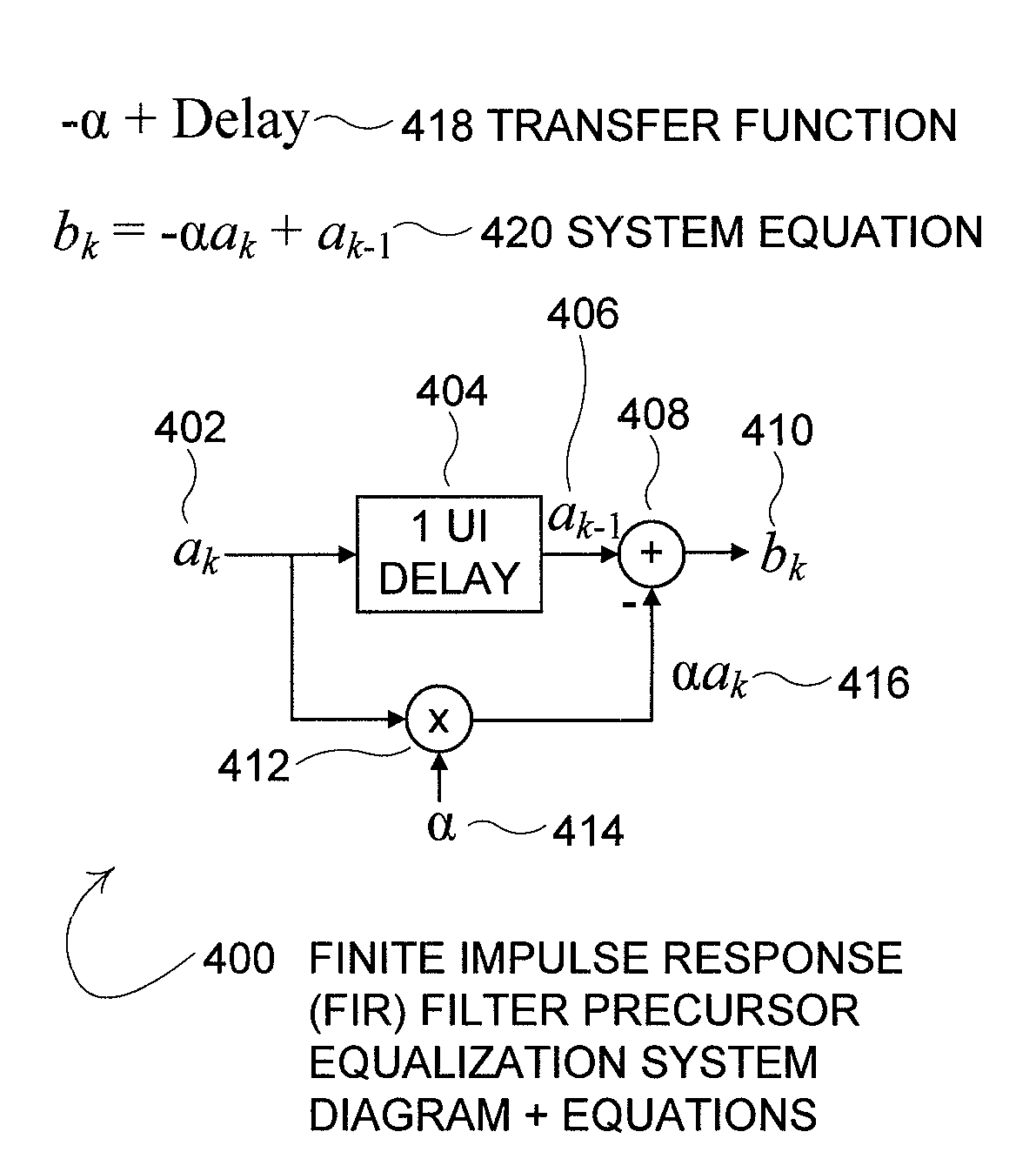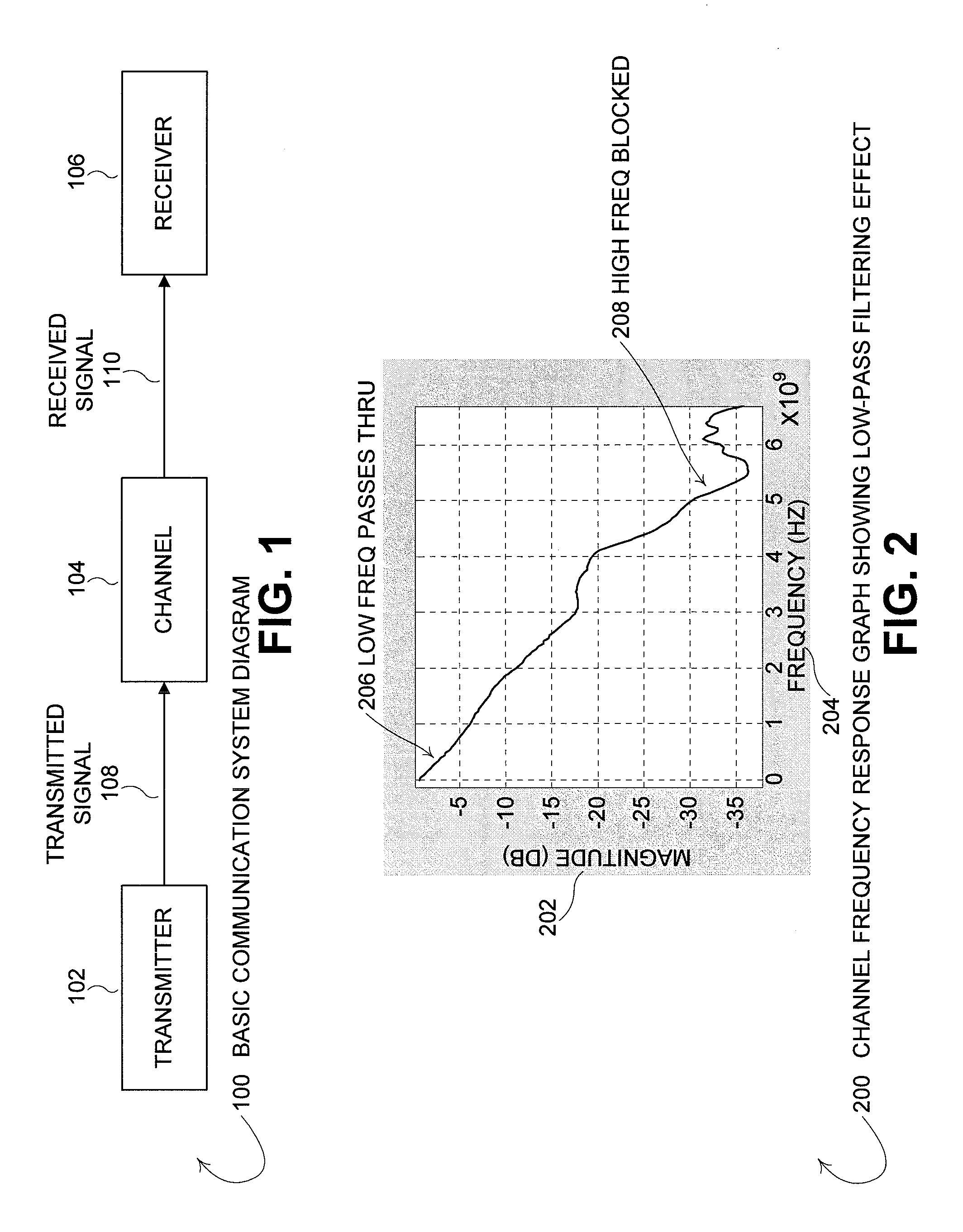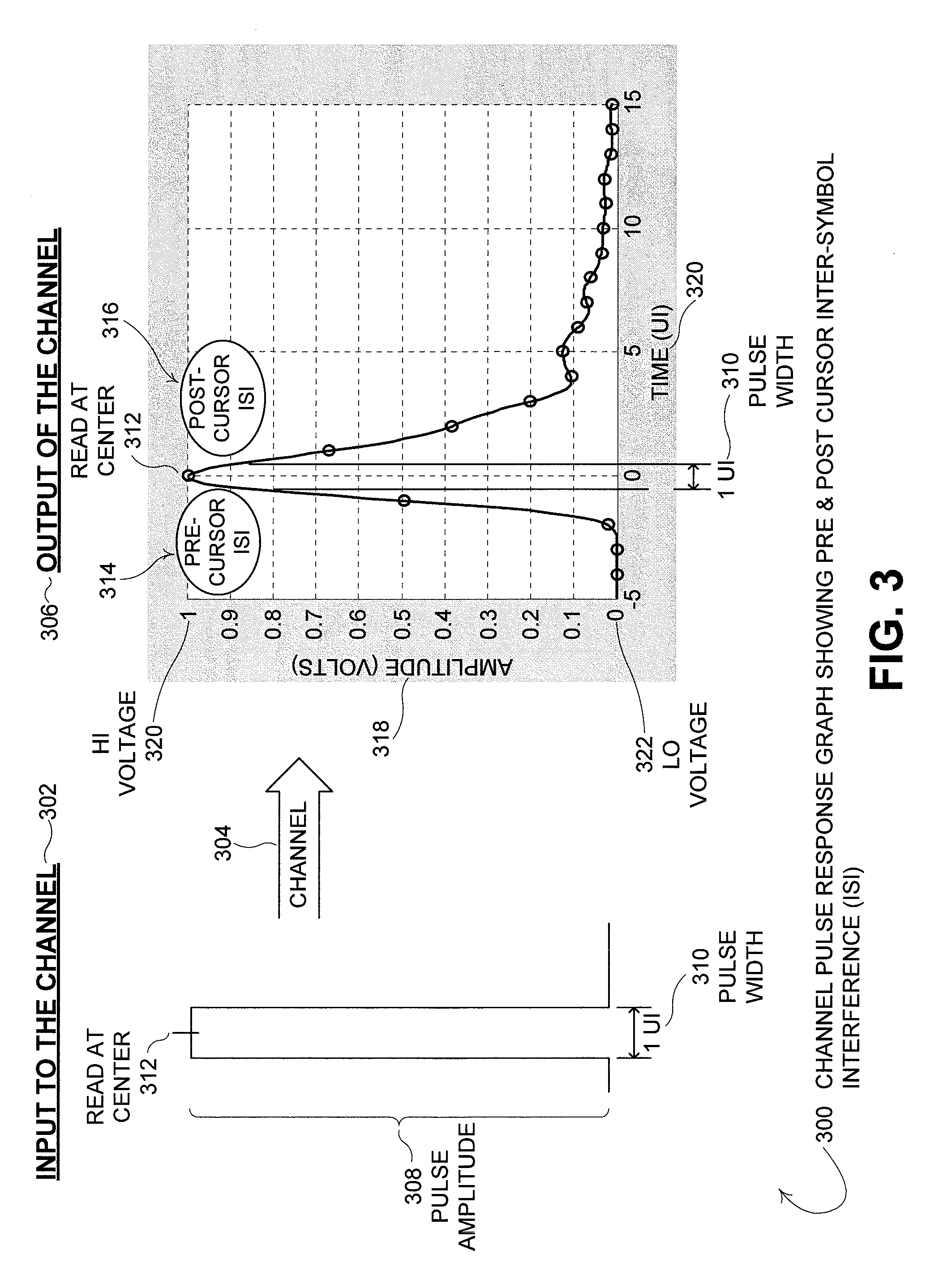Tx back channel adaptation algorithm
- Summary
- Abstract
- Description
- Claims
- Application Information
AI Technical Summary
Benefits of technology
Problems solved by technology
Method used
Image
Examples
Embodiment Construction
[0023]FIG. 1 is a diagram of a basic communication system 100. In a basic communications system 100, a transmitter 102 sends a signal 108 over a communications channel 104 to a receiver 106. The communications channel 104 (aka. communication medium) in an ideal system does not distort the signal 108, so the received signal 110 is equal to the transmitted signal 108. For a digital communications system, the signal 108, 110 is comprised of a series of pulses. For an ideal channel 104, the transmitter 102 sends pulses of perfect square waves, which are not distorted by the ideal channel 104 and are read / decoded by the receiver 106 without errors. For the ideal system there is a flat gain over the frequency domain, implying an infinite frequency bandwidth for the ideal channel 104. In a real-world, practical communications system 100, the received signal 110 is corrupted and / or distorted by the physical communications mediums that make up the communications channel 104. Common non-ideal...
PUM
 Login to View More
Login to View More Abstract
Description
Claims
Application Information
 Login to View More
Login to View More - R&D
- Intellectual Property
- Life Sciences
- Materials
- Tech Scout
- Unparalleled Data Quality
- Higher Quality Content
- 60% Fewer Hallucinations
Browse by: Latest US Patents, China's latest patents, Technical Efficacy Thesaurus, Application Domain, Technology Topic, Popular Technical Reports.
© 2025 PatSnap. All rights reserved.Legal|Privacy policy|Modern Slavery Act Transparency Statement|Sitemap|About US| Contact US: help@patsnap.com



